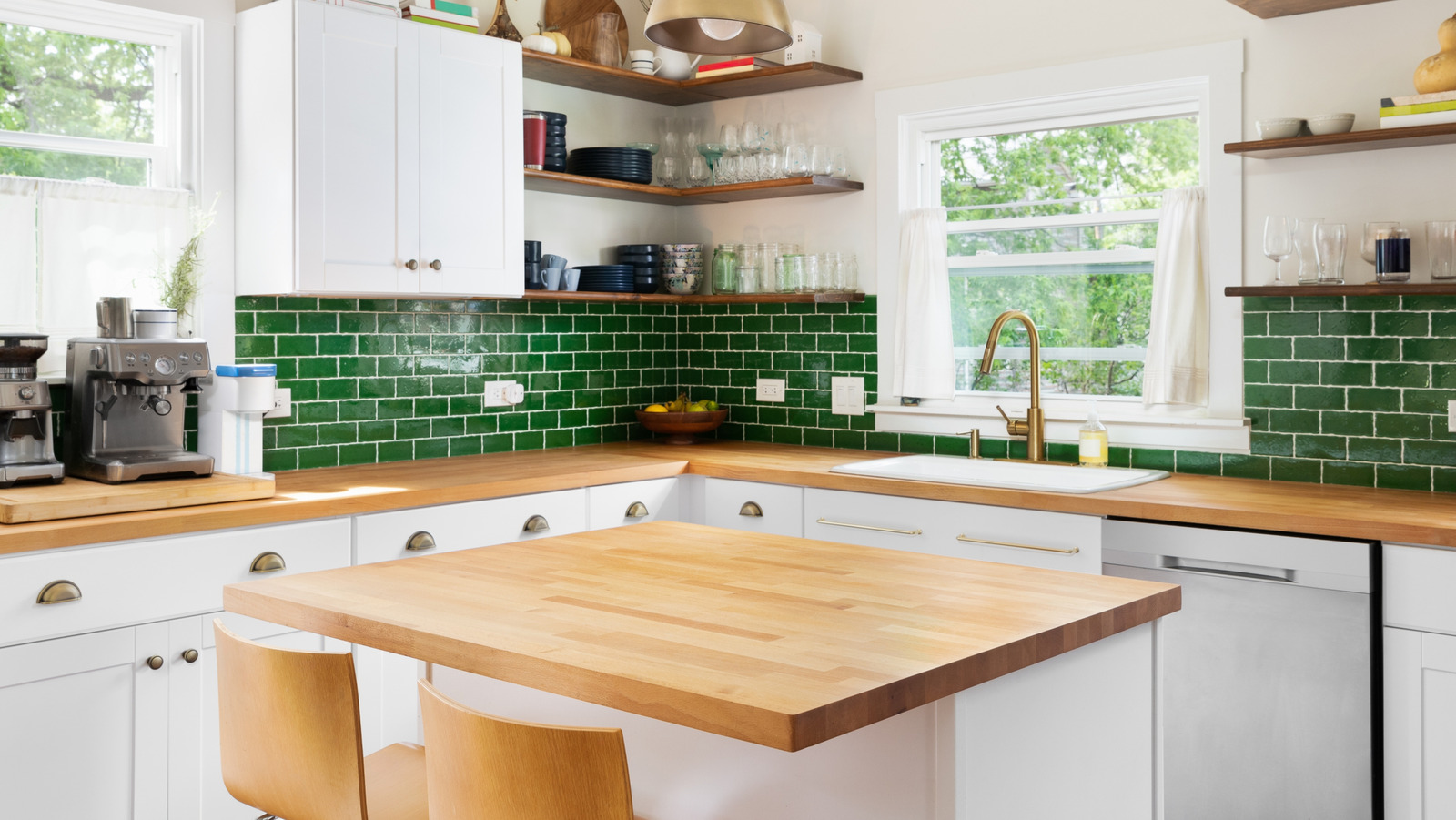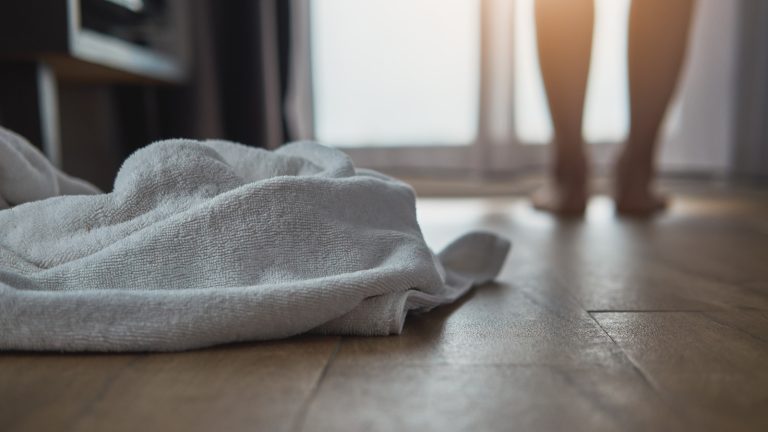
When it comes to selecting your kitchen surfaces, the butcher block countertop is a versatile option that offers great value. Not only is it affordable, environmentally friendly, and quite durable, but it can also function as a built-in cutting board perfect for chopping fruits and vegetables, rolling out pizza dough, or cutting cookies. While the term “butcher block” may conjure images of butchers slicing up meats, it’s important to note that meat, poultry, and fish should be cut on a separate cutting board to prevent potential bacteria contamination.
But can you really chop food directly on butcher block countertops? The answer is… maybe. Historically, thick wood has been used for chopping meats, and this countertop style is sturdy enough to handle chopping while being gentle on knives compared to harder surfaces like granite or quartzite. However, due to the wear and tear it can cause over time, many people still prefer to use a cutting board.
Despite its durability, prepping food directly on a butcher block comes with some drawbacks. Brightly-colored produce can leave stains, knives can create slices in the wood, and the porous surface can harbor mold and rot without proper care. While there are certain things you should avoid doing with your butcher block countertops, following some maintenance tips can ensure you can safely prep food on them for years to come.
How to care for your butcher block counter for food prep
To keep your butcher block countertops in good condition and safe for food prep, it’s important to maintain them regularly. To prevent food staining, promptly scrape off any food residue with a spatula and clean the counter with dish soap and water. For sanitization, mix equal parts white vinegar and water in a spray bottle, spray the surface, and wipe it down with a dry cloth. These steps should be done daily to keep the surface clean and hygienic.
Over time, cuts and nicks may appear on your countertops, but you can restore them with a few simple steps. Sand down the butcher block with an orbital sander to even out the surface and remove dirt and old finishes. Next, seal the countertop with mineral oil, hemp oil, tung oil, or a food-safe polyurethane sealant to protect it. Finally, wipe up water spills promptly to prevent mold and rot from developing in the wood.






